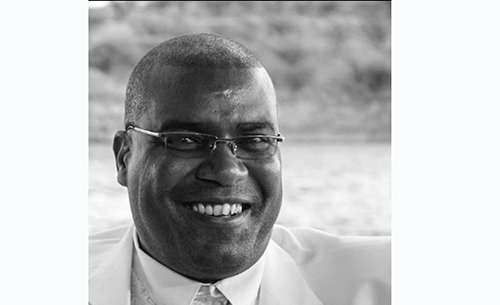Mental health problems have been on a steady increase in Namibia, with suicide cases on the rise and more and more people, especially the youth, find themselves in need of help with nowhere to turn to.
With only a few mental health professionals based in towns such as Otavi, Grootfontien, Tsumeb, Rundu and Katima Mulilo to help people with mental illnesses, Sidney Uapingena Kahimise started Turning Point Psychotherapeutic Centre. It officially opened its doors on 15 October 2021 in Otavi with its first intake of patients.
At the centre of this business is mental health.
“We handle most mental health issues such as substance use and addiction, grief, depression, all forms of stressors, trauma, etc,” said Kahimise. It has trained and skilled staff members and health professionals providing psychotherapy (individual and group sessions), psycho-social support, assessments and psycho-pharmacology, amongst others.
The team consists of a psychiatrist, clinical psychologist, occupational therapist and social worker, alongside other health professionals. A massage therapist comes in weekly to offer deep tissue massages and other forms of therapy.
Therapy includes individual, group, family and couples’ therapy sessions.
Kahimise said with this centre, he is trying to break the widespread stigma attached to mental health and seeking for help, saying the centre thrives
to create new perceptions and understanding of what mental health is, and what the benefits of therapy are to various areas of functioning. Located less than 5km from the Otavi CBD and with a staff complement of 15 people, Turning Point has a unique location and set-up. “We are surrounded by plants and colourful flowers and green grass around the centre, not to mention the beautiful Otavi Mountains. The centre is not structured or set up like your typical hospital psychiatric ward; it is much more rustic, homey and user-friendly,” he said proudly. There is a block with rooms for male patients, all en-suite, and indoor rooms for females, with some en-suite.
Asked about some challenges he faced with establishing this business, he said the biggest challenge that they are still battling to overcome is that of stigma and discrimination. “Mental health and seeking help for it is something grossly shunned upon in the local communities. There is a misconception that one is automatically mentally unstable and challenged when they receive care at such a facility. We have had several presentations and mental health awareness drives at different companies, schools and associations in and around Otavi to help curb this stigma.”
One other challenge has been with garnering support from the businesses to help pay the fees for those who are in dire need but cannot afford.


